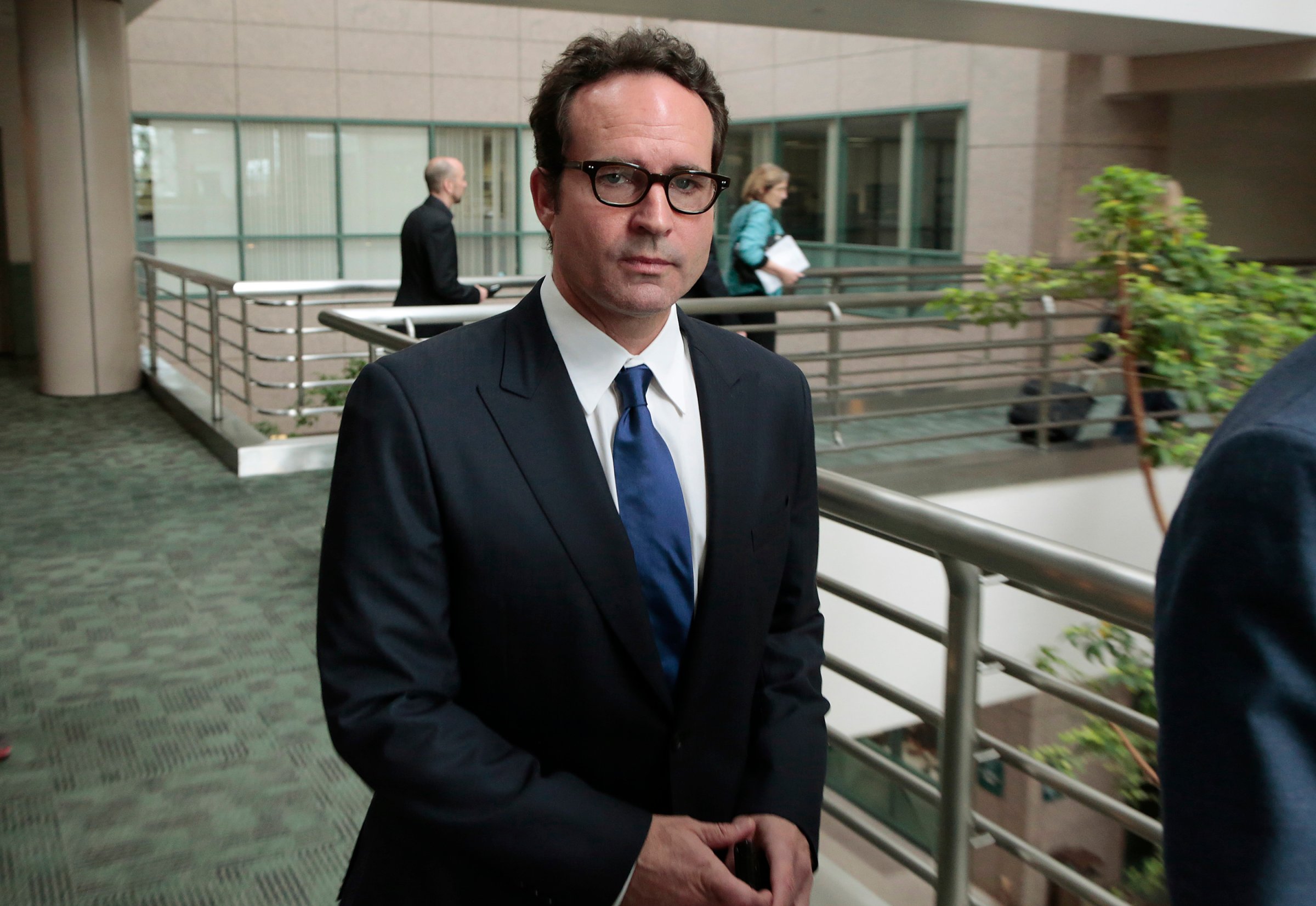
Jason Patric, star of the 1980s teen vampire flick The Lost Boys, won on appeal Wednesday the right to establish that he is the father of a four-year-old boy conceived through in vitro fertilization with a former lover who he never married.
Patric and his ex-girlfriend Danielle Schreiber agreed to have a child via in-vitro fertilization in 2008 after trying unsuccessfully to have a baby naturally for several years while they were still living together. At the time Patric agreed to in-vitro fertilization, Schreiber had moved out of Patric’s home and says she told him that she planned to have a child as a single mother. Patric wrote Schreiber a letter saying that he was not ready to be a father, but that it was okay for her to use his sperm to conceive as long as she told no one about the arrangement.
In December 2009 their son Gus was born. Patric formed a bond with the boy and spent time together with him and Schreiber. He also Skyped with Gus and remain in contact with the boy until Schreiber terminated contact with Patric in 2012.
A lower court judge had ruled that the law allowed Schreiber to keep Patric away from the child because he had served as a sperm donor at the time of the insemination, even though she had included Patric’s name as an “intended parent” on the informed consent form she signed for the procedure. Patric was not listed as the father on Gus’ birth certificate.
An appellate court overturned that decision Wednesday, ruling that the California statute at issue did not apply if the couple was purposefully trying to have a child together, the Hollywood Reporter reports. The court held that the original law was intended only to allow women to receive sperm donations without having to fear a paternity test in the future and that men could donate sperm without being forced to pay child support.
The reversal went on to state that “a sperm donor who has established a familial relationship with the child, and has demonstrated a commitment to the child and the child’s welfare, can be found to be a presumed parent even though he could not establish paternity based upon his biological connection to the child.”
As a result of the Wednesday’s decision, the case will now be returned to trial court.
More Must-Reads from TIME
- Donald Trump Is TIME's 2024 Person of the Year
- Why We Chose Trump as Person of the Year
- Is Intermittent Fasting Good or Bad for You?
- The 100 Must-Read Books of 2024
- The 20 Best Christmas TV Episodes
- Column: If Optimism Feels Ridiculous Now, Try Hope
- The Future of Climate Action Is Trade Policy
- Merle Bombardieri Is Helping People Make the Baby Decision
Contact us at letters@time.com